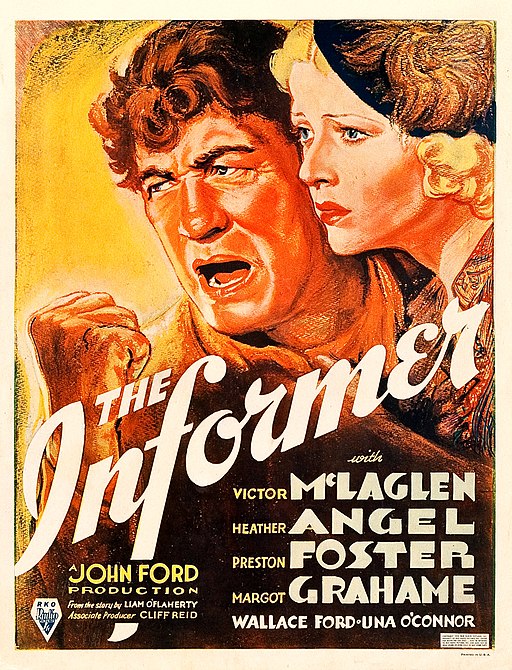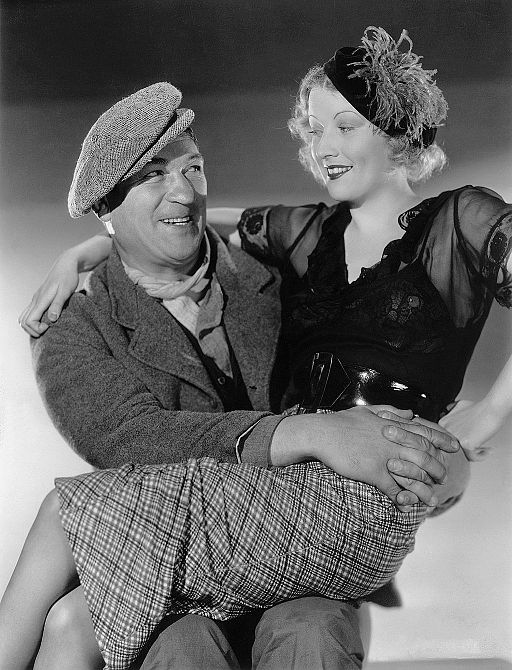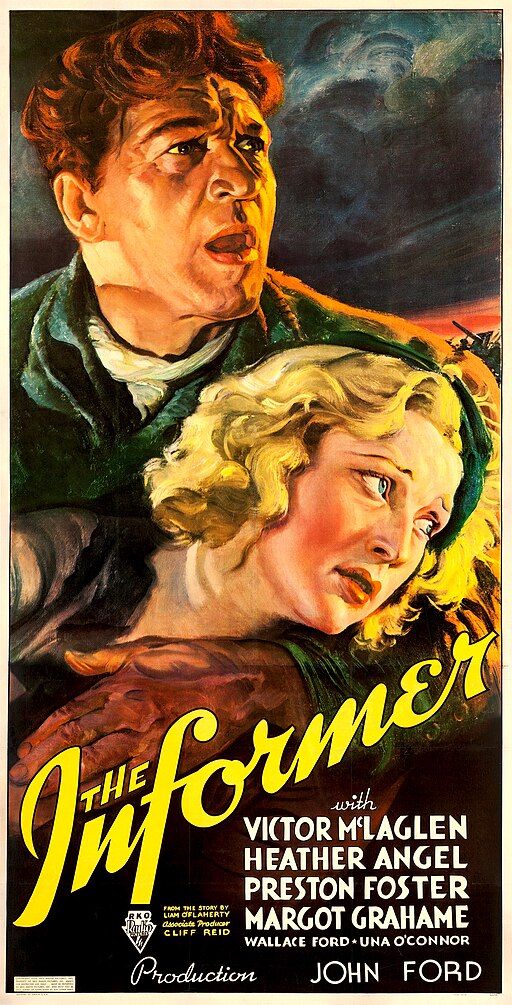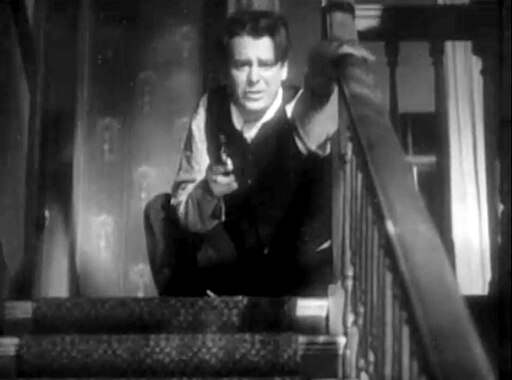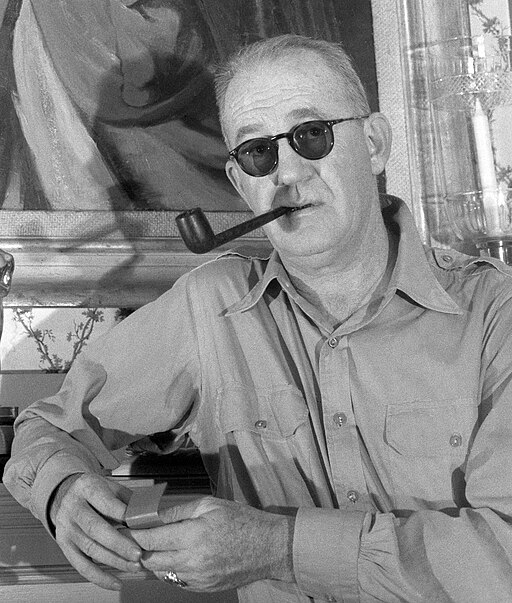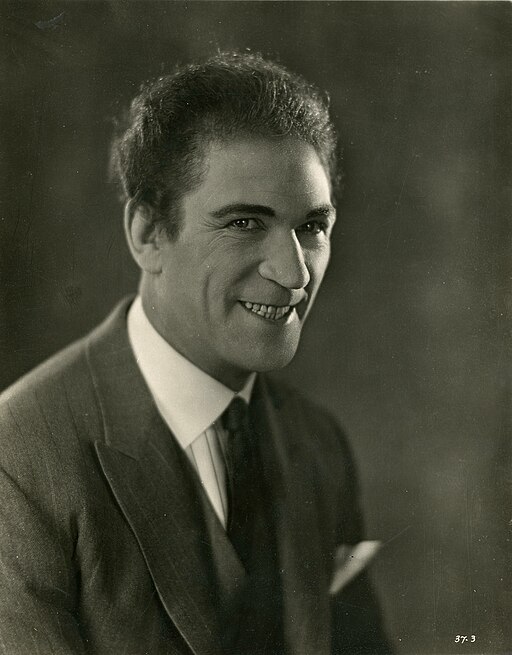The Informer - 1935
back| Released by | RKO Radio Pictures |
| Producer | John Ford |
| Script | Dudley Nichols (based on the novel by Liam O'Flaherty) |
| Cinematography | Joseph H. August |
| Music by | Max Steiner |
| Running time | 91 minutes |
| Film budget | $243,000 |
| Box office sales | $950,000 |
| Main cast | Victor McLaglen - Heather Angel - Preston Foster - Margor Grahame |
| Director | John Ford |
The Informer – 1935
John Ford’s and Joseph August’s visual icon from 1935
"The Informer" (1935), directed by John Ford, is a poignant portrayal of betrayal, guilt, and redemption set against the backdrop of 1922 Ireland during the Irish War of Independence. The film follows Gypo Nolan (Victor McLaglen), a destitute ex-revolutionary who betrays his comrade for a reward, only to be tormented by guilt and paranoia.
The cinematography, led by Joseph H. August, is a critical aspect of the film’s enduring impact. August employs expressionistic lighting and shadow, creating a stark, moody atmosphere that reflects Gypo’s inner turmoil. The use of deep focus allows for intricate compositions, layering characters and elements of the setting to enhance the narrative’s depth.
Ford’s innovative directorial choices, combined with August’s masterful camera work, result in a visually stunning film. The use of close-ups is particularly noteworthy, capturing the raw emotion and moral conflict of the characters, especially McLaglen’s Gypo. This intimate, visual storytelling contributes significantly to the film’s dramatic weight.
"The Informer" stands as a testament to the power of visual narrative in cinema, with its cinematography playing a pivotal role in conveying the story’s thematic complexity and emotional resonance. The film’s visual style influenced subsequent generations of filmmakers, securing its place in the history of cinematic artistry.
Related
Plot Summary
Set in post-revolutionary Dublin, the narrative follows Gypo Nolan, an impoverished ex-IRA member, struggling with desperation and moral dilemmas. When Nolan learns of a bounty placed on his friend, Frankie McPhillip, he faces a soul-wrenching decision that sets in motion a series of tragic events. As Nolan grapples with the consequences of his choices, the narrative delves deep into his psyche, tracing his downward spiral consumed by guilt and paranoia.
Victor McLaglen plays the role of Gypo Nolan in a very sinister, and brilliant way. Being part of the Irish Republican Army he had to live up to the expectations of the group. But he could not. He first refused to kill a constable (a so-called “Black and Tan”) which caused his dismissal from the IRA. His biggest mistake however was his decision to betray his friend Frankie McPhillip for 20 Pounds. Gypo Nolan needed the money for the passage to the United States which he and his girlfriend Katie would like to flee to. His strange behavior afterwards led to suspicions by the IRA leadership.
The Informer plays with different themes giving the audience a rollercoaster of emotions to deal with. The betrayal of the leading character mixes with the sympathy for his disastrous decisions made out of personal motives to better his life and that of his girlfriend.
Complete cast of The Informer:
- Victor McLaglen as Gypo Nolan
- Heather Angel as Mary McPhillip
- Preston Foster as Dan Gallagher
- Margot Grahame as Katie Madden
- Wallace Ford as Frankie McPhillip
- Una O'Connor as Mrs. McPhillip
- J.M. Kerrigan as Terry
- Joe Sawyer as Bartly Mulholland (credited as Joseph Sauers)
- Neil Fitzgerald as Tommy Connor
- Donald Meek as Peter Mulligan
- D'Arcy Corrigan as The Blind Man
- Leo McCabe as Donahue
- Steve Pendleton as Dennis Daly (credited as Gaylord Pendleton)
- Francis Ford as "Judge" Flynn
- May Boley as Madame Betty
- Grady Sutton as A Customer
- Al Ferguson as British Officer (uncredited)
- Frank Baker as Bartender (uncredited)
- Barry Fitzgerald as Man in Pub (uncredited)
Themes and Relevance of "The Informer":
- Betrayal and Guilt: The film’s central theme revolves around Nolan's betrayal and the profound emotional and psychological toll it exacts on him. It masterfully captures the human capacity for both treachery and remorse.
- Redemption: As the narrative progresses, the quest for redemption becomes a pivotal theme, reflecting on the idea that every individual seeks salvation in their own unique way.
- Social and Political Turmoil: The film paints a vivid picture of the societal unrest and political tensions of 1920s Ireland, showcasing the challenges and moral ambiguities of a nation in flux.
Significant Aspects:
- Performance: Victor McLaglen’s portrayal of Gypo Nolan is often hailed as one of the most powerful performances of the era. His depiction of a man tormented by his actions and searching for redemption is both heart-wrenching and compelling.
- Direction: John Ford's meticulous direction, combined with the atmospheric cinematography of Joseph H. August, evokes a sense of gloom and doom that perfectly complements the narrative's tone.
- Score: Max Steiner's Oscar-winning score adds depth and emotion, further elevating the film's overall impact.
Victor McLaglen’s role analyzed
Gypo Nolan, as portrayed by Victor McLaglen, is an ex-IRA member, evicted from the organization for not executing a suspected informant. As the film unfolds, Nolan's life is marked by desperation and a series of moral dilemmas that culminate in his betrayal of a close friend for a cash reward.
Performance Depth:
- Physicality: McLaglen, with his imposing stature, brings a palpable physical presence to the role. This is contrasted with moments of vulnerability, particularly when he's wrestling with guilt or fear. His lumbering gait, hunched posture, and the weight of his movements depict a man burdened by his actions and their consequences.
- Emotional Range: McLaglen's portrayal spans a vast emotional spectrum. From the initial desperation that drives him to inform on his friend, to the spiraling guilt and paranoia that consume him after the act, McLaglen captures the audience's empathy. His moments of jubilation after receiving the bounty, which quickly turn to horror upon realizing the gravity of his betrayal, are particularly gripping.
- Psychological Descent: One of the standout features of McLaglen's performance is his depiction of Gypo's psychological decline. As suspicions rise and his guilt becomes more consuming, Gypo's sanity starts to unravel. McLaglen masterfully captures this decline, using subtle facial expressions, incoherent mumblings, and increasingly erratic behavior.
- Interactions with Other Characters: McLaglen’s dynamics with other characters, especially with Katie Madden and Frankie McPhillip, are layered and complex. His interactions shift between tenderness, aggression, and remorse, showcasing the multi-faceted nature of Gypo's character.
Legacy of the Role:
Victor McLaglen's portrayal of Gypo Nolan earned him an Academy Award for Best Actor, a testament to the depth and gravitas he brought to the role. His performance is often cited as one of the best in the annals of cinema, especially in the way he depicted a character's inner turmoil and moral ambiguity.
John Ford’s excellent direction analyzed
1. Atmospheric Immersion:
- Setting: Ford crafts a brooding, atmospheric setting, immersing the audience in 1922 Dublin's gloomy streets. The chiaroscuro lighting, often with a single light source illuminating a dark scene, accentuates the moody tone of the film.
- Sound: The ambient sounds of footsteps, rain, and distant noises create an eerie backdrop, heightening the film's tension and Gypo's spiraling paranoia.
2. Character Depth and Interaction:
- Ford employs close-ups and reaction shots effectively, allowing audiences to intimately experience characters' emotions. For instance, the close-ups of Gypo's face during moments of intense guilt provide a raw insight into his internal struggles.
- The director emphasizes characters' interactions, focusing on their dynamics and relationships. This approach ensures that even secondary characters have depth, contributing to the narrative's richness.
3. Visual Symbolism:
- Ford uses visual symbols to enhance storytelling. For example, the shadows and dark corners prevalent throughout the film serve as metaphors for secrets, betrayals, and the murky moral terrain the characters navigate.
- Another instance is when Gypo is illuminated by light while in the confession booth, symbolizing his search for redemption amidst his sins.
4. Pacing and Rhythm:
-
Ford's pacing is deliberate, with moments of calm punctuated by bursts of action or heightened emotion. This rhythm ensures that the audience remains engaged, allowing for reflection during quieter moments while still maintaining a sense of urgency.
5. Narrative Structure:
- The film is linear, but Ford uses flashbacks and memories effectively to provide context and depth to characters' motivations.
- He also masterfully builds suspense, keeping audiences invested in Gypo's fate, especially as his paranoia intensifies.
6. Collaborative Approach:
- Ford's collaboration with cinematographer Joseph H. August is evident in the film's visual storytelling. The two worked in tandem to create a film that's both visually captivating and narratively compelling.
- Ford's trust in his actors, especially Victor McLaglen, allowed them to bring depth to their roles. He often gave them the freedom to interpret their characters, resulting in authentic and memorable performances.
7. Social and Political Undertones:
- While the film is a personal story of betrayal and redemption, Ford ensures that the broader context of the Irish War of Independence is never too distant. The societal unrest and political tensions serve as a constant backdrop, adding layers to the narrative.
Criticism and Acclaim
- Acclaim: "The Informer" was widely lauded for its storytelling, direction, performances, and its moody atmospheric setting. The narrative’s psychological depth and emotional resonance were particularly noted.
- Criticism: Some critiques at the time revolved around its dark tone and the liberties taken in adapting the novel. However, most modern retrospectives view these decisions as strengths that contribute to the film's enduring appeal.
Awards and nominations for "The Informer"
Academy Awards (1936):
Wins:
- Best Director - John Ford: This was the first of Ford's four Best Director Oscars, making him the director with the most wins in this category in Oscar history.
- Best Actor - Victor McLaglen: McLaglen's portrayal of Gypo Nolan garnered much attention, culminating in this prestigious award.
- Best Writing, Adaptation - Dudley Nichols: Nichols was recognized for his adaptation of Liam O'Flaherty's novel, though it's notable that he initially declined the Oscar due to an ongoing writers' strike.
- Best Score - Max Steiner: Steiner's score was pivotal in setting the tone of the film, blending perfectly with the narrative's mood and pacing.
Nominations:
- Best Picture: While the film did not win in this category, its nomination is a testament to its overall excellence and the impact it had on audiences and critics alike.
- Best Film Editing - George Hively: The editing played a crucial role in maintaining the film's pacing and rhythm, ensuring that audiences remained engaged throughout.
Cultural Impact:
"The Informer" remains one of John Ford's most celebrated films and is frequently referenced as a prime example of storytelling that masterfully combines character study with sociopolitical context. Its portrayal of personal turmoil juxtaposed against the backdrop of a nation's own struggle makes it a timeless tale of humanity, morality, and the complexities of the human spirit. In its exploration of the depths of betrayal and the quest for redemption, "The Informer" offers a rich tapestry of emotions, making it a must-watch for enthusiasts of classic cinema.

